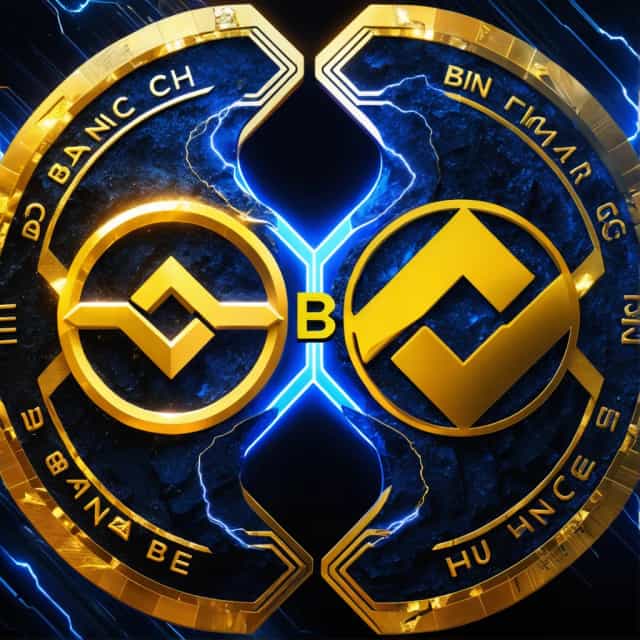
출처: Block Media
Ondo Finance Advocates for Delay in Nasdaq’s Tokenized Securities Trading Amid Calls for Transparency
Ondo Finance has submitted a formal request to the U.S. Securities and Exchange Commission (SEC), urging the regulatory body to postpone the approval of Nasdaq’s tokenized securities trading initiative. Amid mounting concerns regarding accessibility and transparency, Ondo expressed apprehensions about the framework of the proposed system, particularly the role of the Depository Trust Company (DTC) and its anticipated tokenized settlement system.
Nasdaq’s Proposal Hinges on DTC’s Settlement Framework
In an open letter released on October 17, Ondo Finance argued that Nasdaq’s proposal relies heavily on DTC’s implementation of a tokenized settlement system—a scheme whose operational specifics remain undisclosed to the public. Ondo stressed the importance of transparency in the development of new market protocols, asserting that all participants should have equal access to pertinent information. Without clear insights into how DTC’s system would interface with blockchain networks or its operational intricacies, Ondo believes both regulators and investors are left at a disadvantage.
Moreover, Ondo warned that proceeding without comprehensive public information could exacerbate systemic inequities in the financial ecosystem. The company voiced concerns that such opacity could disproportionately benefit established financial institutions while stifling opportunities for smaller players and emerging firms venturing into tokenized securities markets.
Industry Experts Weigh In on Transparency Issues
Maya Buzinovich, CEO of FG Nexus, echoed Ondo Finance’s concerns and emphasized the risks posed by a lack of transparency surrounding DTC's blockchain integration. “Without clear details on how DTC will connect with decentralized networks, the tokenized market risks stagnation,” Buzinovich noted. She highlighted the danger of replicating Wall Street’s existing centralized frameworks on blockchain, which would undermine the fundamental principles of tokenization aimed at democratizing access and fostering decentralization.
Buzinovich further emphasized the necessity of transparent and consistent regulatory frameworks for transitioning real-world assets onto blockchain platforms. These frameworks would enable both the traditional finance sector and the crypto industry to successfully integrate tokenized securities into the broader financial ecosystem.
Debate Over Regulatory Delays Sparks Divergent Views
While Ondo’s arguments center on fairness and transparency, Eli Cohen, General Counsel at Centrifuge, offered a critical counterpoint, suggesting Ondo’s stance may stem from its vested interest in safeguarding its own platform, Ondo Global Markets (OGM). “Delaying the regulatory approval process could inadvertently harm the industry. The crypto market needs momentum, and postponements could lead to indefinite shelving due to shifting political landscapes,” Cohen asserted.
This split in perspectives reflects an ongoing tension within the blockchain and cryptocurrency sectors—balancing the need for clear, equitable regulations with the urgency to drive innovation and market growth.
Ondo Finance Broadens Tokenized Offerings for Institutional and Retail Investors
As the debate unfolds, Ondo Finance continues to expand its footprint in the tokenized securities market. Recently, the firm launched a platform that grants non-U.S. investors access to a broad range of tokenized stocks and exchange-traded funds (ETFs) on the Ethereum blockchain. Earlier in 2023, Ondo strategically distributed its flagship product, “Ondo Short-Term U.S. Treasuries (OUSG),” on the Ripple Ledger (XRPL) in an effort to attract a higher number of institutional investors.
These developments demonstrate Ondo’s commitment to leveraging blockchain technology for financial innovation while advocating for a regulatory landscape that facilitates transparency and competition.
Transparency Versus Innovation: The Road Ahead for Tokenized Securities
The ongoing debate highlights the inherent tension between advancing innovation and maintaining transparency in the rapidly evolving tokenization sector. Proponents of stricter regulations argue that clear, publicly accessible frameworks are essential for ensuring fair competition and minimizing risks associated with opaque systems. Conversely, critics assert that regulatory delays have the potential to thwart the growth and adoption of crypto-based financial products.
As the SEC deliberates on Nasdaq’s proposal, its decision will undoubtedly mark a pivotal moment for the future of tokenized securities trading. The outcome has far-reaching implications, not just for industry giants like Nasdaq and Ondo Finance, but also for how Wall Street and blockchain technologies coexist in the burgeoning digital economy.
Amid the push and pull between established financial institutions and emerging blockchain players, one thing remains clear: the success of the tokenized securities market hinges on achieving a delicate balance between transparency, accessibility, innovation, and regulatory oversight. The next steps taken by the SEC will set the tone for how real-world assets transition onto blockchain networks—and shape the trajectory of the financial industry’s intersection with tokenization.










